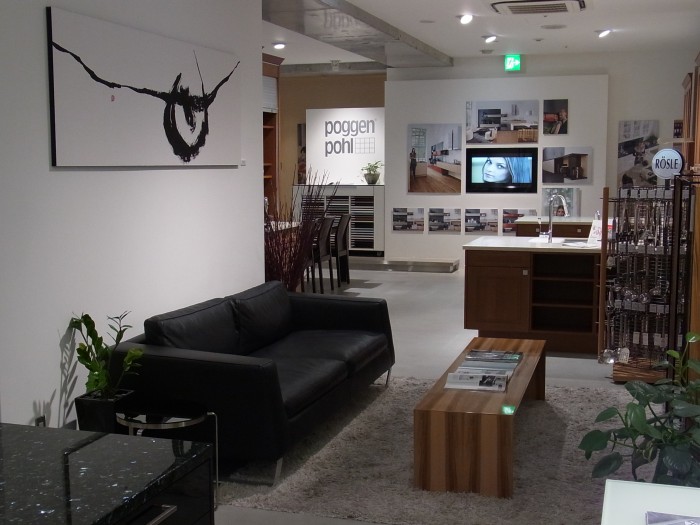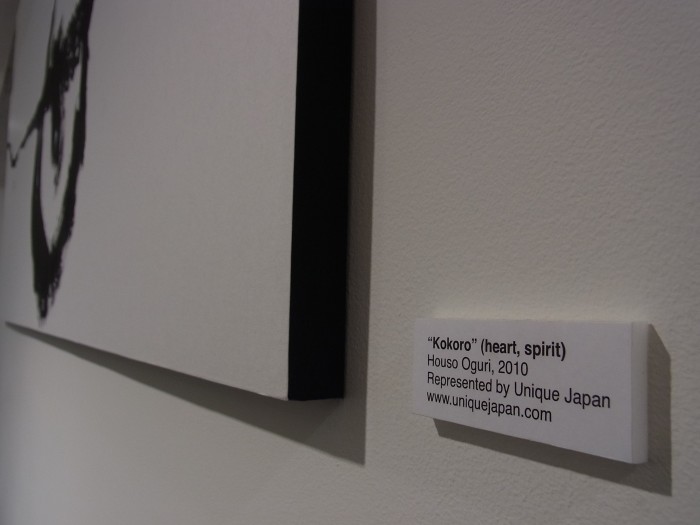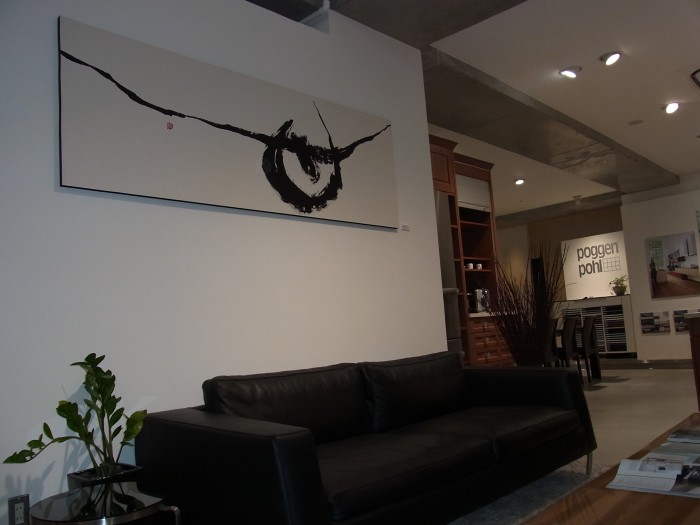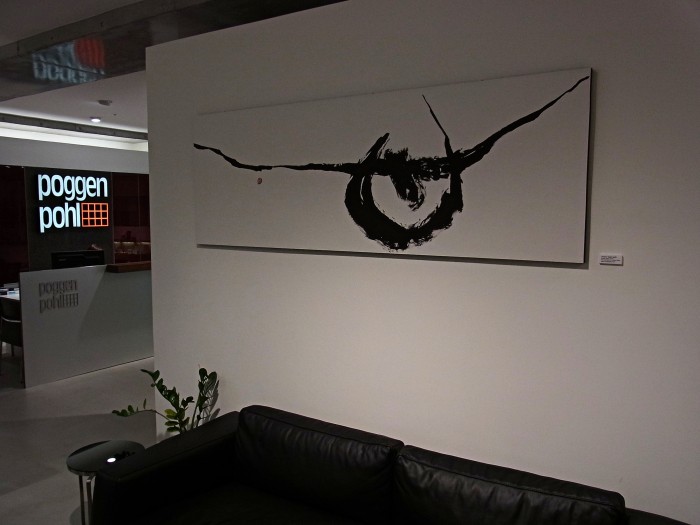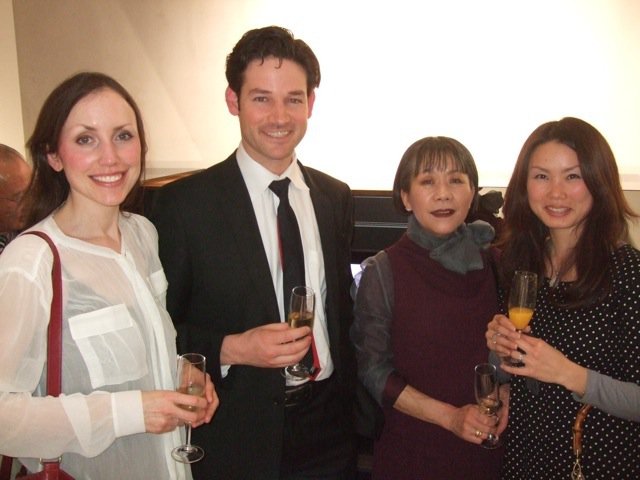Sumi-e Calligraphy Art by Houso Oguri (KOKORO; Heart, Mind, Spirit)
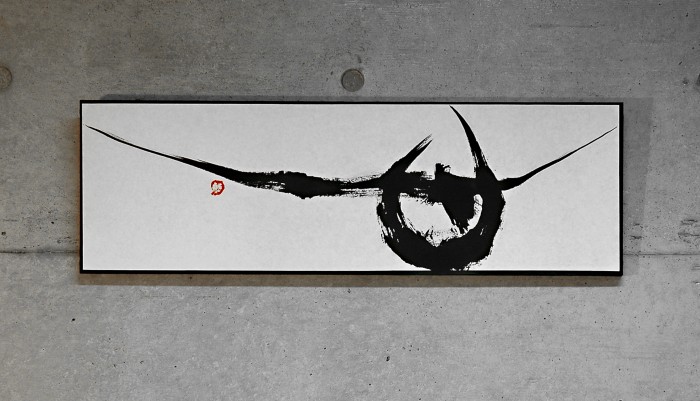
About this Piece
KOKORO, means “heart, mind and spirit” and it holds a very powerful message in Bushido (code of moral principles when the Samurai were required or instructed to observe.)
KOKORO, means “heart, mind and spirit” and it holds a very powerful message in Bushido (code of moral principles when the Samurai were required or instructed to observe.)
As Japanese philosopher Miwa Shissai writes:
“The lord of heaven and earth, of all living beings, dwelling in the heart of man, becomes his mind (Kokoro); hence a mind is a living thing, and is ever luminous. ”
With its bold and heavy brushstrokes, this sumi-e painting has an luminosity that evokes energy and appreciation of life. In our minds lives our hearts, and in our hearts live our mind.
This art piece comes mounted on a wood board with a black border. Every Sumi-e painting is an original by Houso Oguri made exclusively for Unique Japan. She will prepare a piece for you within approximately two weeks upon order confirmation.
Standard size: (68cm x 22cm / 26.8in x 8.7in)
Special Orders
If you are interested in a custom made piece at most any size in any Japanese kanji, for a special location such as a business reception area, restaurant, showroom, home, etc. please contact us.
Featured Client: Poggenpohl
For their showroom in Tokyo, Unique Japan fitted a large custom-made KOKORO sumi-e piece by Houso Oguri. It is absolutely breathtaking.
For their showroom in Tokyo, Unique Japan fitted a large custom-made KOKORO sumi-e piece by Houso Oguri. It is absolutely breathtaking.
Founded over 110 years ago as the first German kitchen brand, Poggenpohl is the best known kitchen brand in the world with exclusive, individual kitchens and first-class quality in every detail.
Size in Poggenpohl showroom: (2030mm x 690mm x 25mm). Refer to images below.
(Left to Right): Unique Japan founders Donna Canning and Pablo Kuntz along Ms. Houso Oguri (Sumi-e Artist), and Unique Japan’s marketing manager Mayumi Tokiwa at Poggenpohl’s grand opening party in Tokyo.
About Sumi-e
Throughout its 2000-year long history, Sumi-e began with highly-disciplined monks trained in the art of concentration, clarity, and simplicity. Sumi-e has been held in the highest esteem and became a powerful way to instill the values of Bushido, the Samurai Code of Conduct or Moral Principles.
Throughout its 2000-year long history, Sumi-e began with highly-disciplined monks trained in the art of concentration, clarity, and simplicity. Sumi-e has been held in the highest esteem and became a powerful way to instill the values of Bushido, the Samurai Code of Conduct or Moral Principles.
For the swordsman, composure on the battlefield had its artistic parallel in the calm and tranquility essential before the fearless release of a brush stroke. Embodying the honorable spirit (tamashi) of ancient warrior codes, Sumi-e was a metaphor for the fleeting world of the courageous Samurai swordsman.
The sublime simplicity of Sumi-e paintings convey a sense of serenity and peace like no other art form. Sumi-e, meaning “charcoal drawing”, is an ancient Japanese art that uses ink derived from densely packed charcoal ash from bamboo or pine. Sumi-e paintings typically capture the spirit of the subject, rather than its appearance. This elegant austerity reflects sumi-e’s relationship with the tranquility of Zen Buddhism.
Artist Biography
Oguri-san was born in 1948 and began training in calligraphy at the tender age of six. As a university undergrad, she specialized in the art of Japanese calligraphy. Following her studies, Oguri-san chose to devote her life to perfecting the art of sumi-e (charcoal drawing), inspiring both young and old with her passion and skill.
Oguri-san was born in 1948 and began training in calligraphy at the tender age of six. As a university undergrad, she specialized in the art of Japanese calligraphy. Following her studies, Oguri-san chose to devote her life to perfecting the art of sumi-e (charcoal drawing), inspiring both young and old with her passion and skill.
A trained professor of calligraphy, Oguri-san also teaches the ancient Japanese art form of ink derived from densely packed charcoal ash. Not only do her art pieces express Zen and calm, but anyone fortunate enough to speak with Oguri-san and share her life experiences also feels a warm and immediate sense of peace.
Her work has appeared in numerous private collections in Japan.



